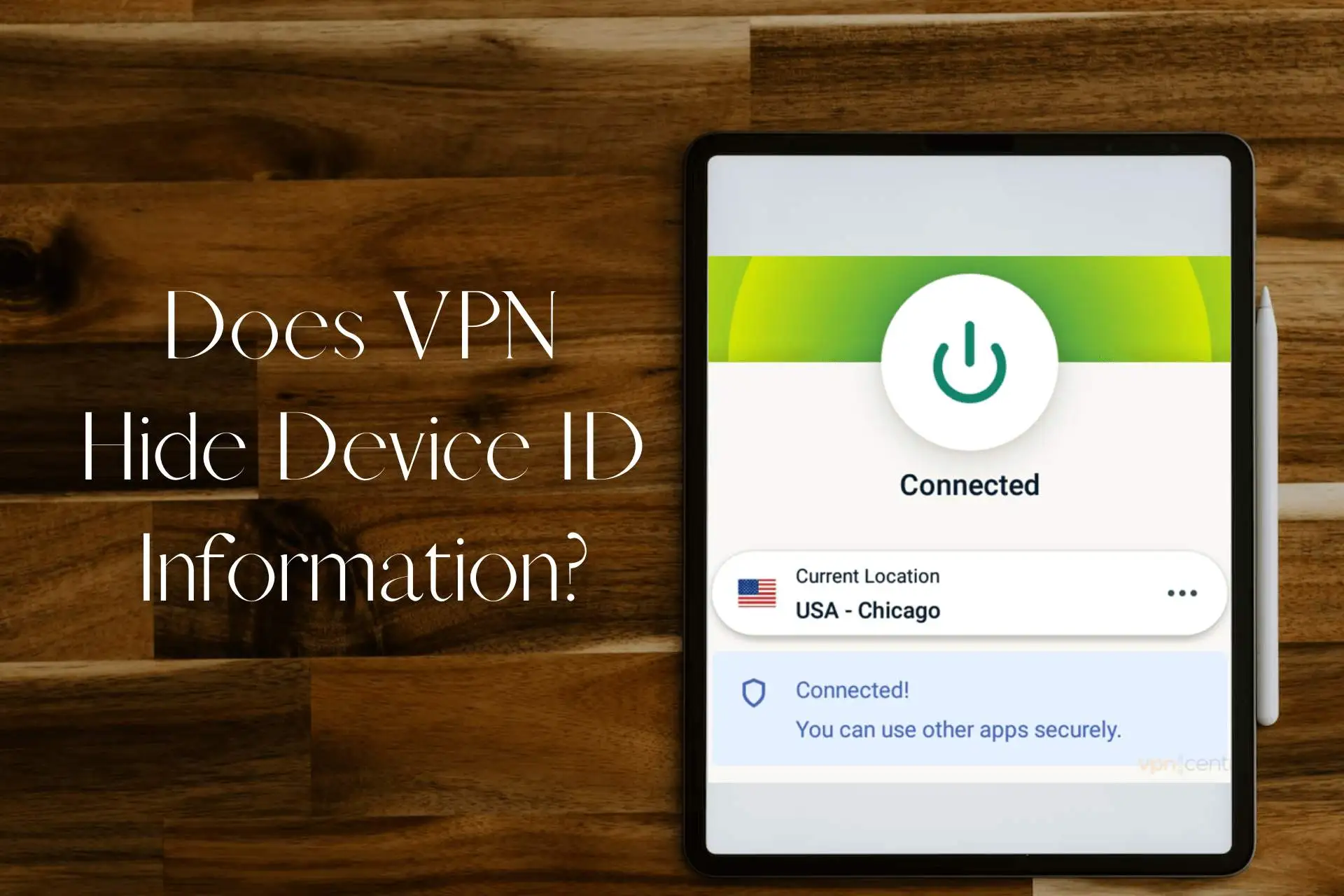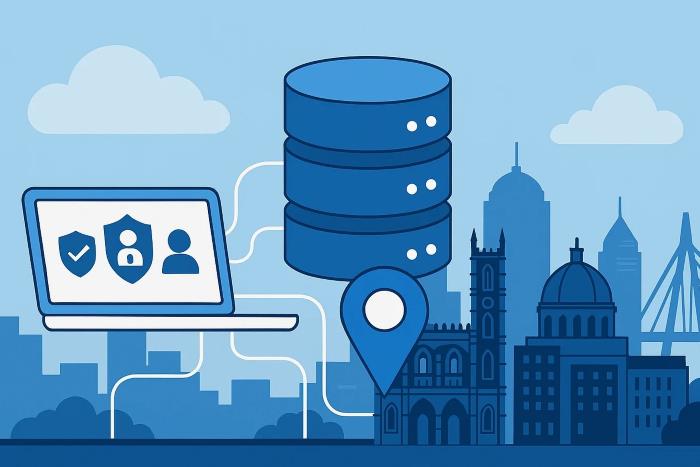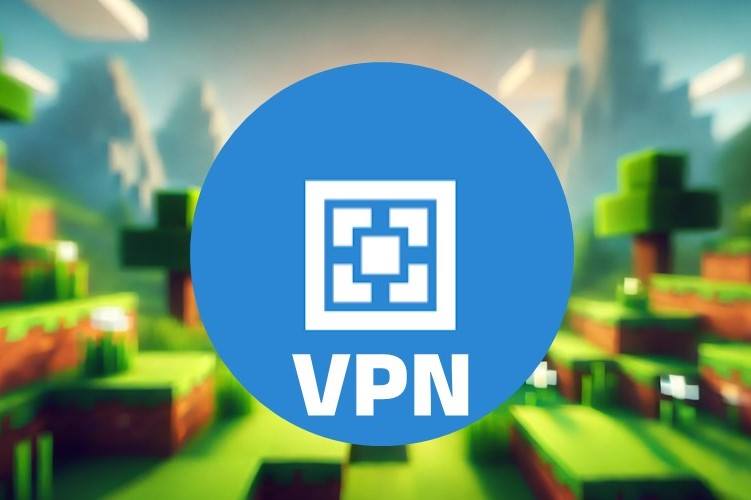Does a VPN Hide Device ID Information? [Must-Know]
5 min. read
Updated on
Read our disclosure page to find out how can you help VPNCentral sustain the editorial team Read more

VPNs ensure high-level privacy when using the web, but the amount and type of information it can secrete depends on its implementation and provider.
A bare-bones software will change your Internet Protocol (IP) address assigned by your Internet service provider (ISP), helping to spoof your location.
Moreover, it encrypts traffic, so neither your ISP nor other trackers will know the sites and apps you access.
However, your IP is not the only identifier. The device you use also has a unique ID and other data you may wish to secure.
Let’s see more about that!
Does VPN hide your device ID?
In general, a VPN doesn’t conceal your device ID data — its type, operating system, web browser, IMSI, IMEI, and MAC address.
However, that is non-personally identifiable information (non-PII) because it’s not linked to you as an individual.
For example, whenever you visit a website that uses tracking tools like Google Analytics, it can log you were on an Android, macOS, or another operating system.
Moreover, it can detect your web browsers, such as Chrome or Firefox.
But there’s no need to worry; all the important information is well-secured.
What does a VPN hide?
While some providers obscure more data than others, this is what all VPNs protect by default:
- IP address and location – Your IP identifies the computer network and its location. It’s assigned by your ISP and can remain static or change from time to time but is always linked to your location. VPNs provide you with a different IP.
- Internet traffic – These services also encrypt all requests to download and upload via the web. That way, your ISP, the government, or other snoopers can’t know what content you access online.
- Streaming, gaming, and torrenting – ISPs are known to intentionally throttle traffic to discourage certain online activities. Using a VPN is the best option to avoid such interference.
However, some providers have extra features that do more than what we outlined above.
What can a VPN hide?
The best companies on the market offer additional tools and services that can further protect your online identity.
They might include:
- Overriding GPS location – Android and iOS devices use location services as a secondary indicator of where you actually are. Some VPNs, such as Surfshark, can override this.
Alternatively, you can turn it off completely yourself.
- Cleaning web browsing history – Your browser and cookie data are usually stored and can give away your real location. Fortunately, some VPNs like Surfshark offer a private search engine, while others, such as CyberGhost, have a web history cleaner feature.
- DNS IP leak protection – A security flaw that reveals your real IP during a DNS request can be prevented with advanced leak protection, such as the one offered by ExpressVPN.
- WebRTC IP leak prevention – A security hole in web browsers can reveal your real IP. However, many VPNs have advanced features to avoid this. ExpressVPN excels in this area.
Here is what else you can protect!
4 things a VPN can’t hide
So, does VPN hide device ID info? As touched on earlier — no, there are some things they can’t obscure, including:
- Browser and OS – If you use a standard browser, web trackers can still log your device type, OS, and browser type.
- IMEI – An International Mobile Equipment Identity (IMEI) number is a unique string of characters assigned to every smartphone and tablet. It’s a security measure to identify that you’re using a trusted device to access accounts and services.
- MAC Address – A similar identifier is the Media Access Control (MAC) address, which routers and a few other network hardware have. Your ISP knows your MAC address, but that doesn’t allow tracking web activity, only the type of device you use.
- IMSI – An International Mobile Subscriber Identity (IMSI) is a number associated with your phone’s SIM card and identifies every cellular network user. It’s not tracked online but is known to your cellular carrier and accessible by law enforcement for call records and cell tower location pings. It has nothing to do with Internet activity.
Note: Many secure search engines (like DuckDuckGo) and browser extensions can secrete or spoof your browser type and OS information. Using these, alongside a good VPN like ExpressVPN, CyberGhost, or Surfshark, will offer superior privacy.
Read more:
Wrap up
If you’ve been wondering whether does VPN hide device ID, the short answer is no.
However, the information that remains accessible won’t give away your actual location or online activity.
Furthermore, you can take steps to add extra layers of protection by subscribing to a reputable VPN provider with advanced security features.









User forum
0 messages